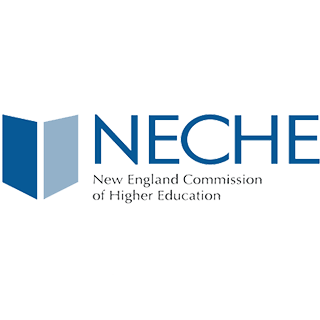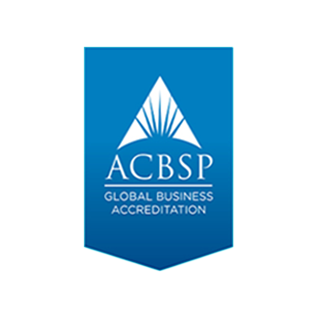For Jazzmen Shipp, Earning a Degree Changed Everything
Business | 2min Read

The art and science of money – making it, managing it and quantifying it – is at the heart of our Bachelor of Science (BS) in Finance. When you earn your finance degree online, you'll analyze data to inform financial planning recommendations for clients and develop knowledge of local and global economies in support of strategic goals and growth.

In the bachelor's in finance online program, you'll bring numbers to life as you use cutting-edge technology and case studies to analyze and synthesize financial reporting data. You’ll also complete the business core, which emphasizes communication, entrepreneurial thinking, collaboration, personal and social responsibility and global orientation.
All undergraduate degrees are made up of major courses, general education classes and free electives.
Choose the general track or add a concentration to your degree program.
Looking for a concentration that can help your finance degree stand out? Our CERTIFIED FINANCIAL PLANNER (CFP®) Board-registered online financial planning concentration can help you specialize your skill set and align yourself with the industry's highest standard.
Graduates of our Bachelor of Science (BS) in Finance with a concentration in Financial Planning will meet the educational requirement to sit for the CFP® exam. You'll learn how to help individuals and businesses achieve their financial goals through learning foundational knowledge in investments, retirement, estate planning, risk management and taxes.
Southern New Hampshire University's BS in Finance with a concentration in Financial Planning is the only CFP® Board-registered bachelors program in New Hampshire, and students nationwide are eligible to enroll.
Courses may include:
Visit the course catalog to view the full BS in Finance with a concentration in Financial Planning curriculum.
In the finance degree online program, you’ll develop firsthand expertise by managing a virtual stock market portfolio and using state-of-the-art simulations to bridge theory with real-world application. Throughout your major courses, you'll use industry-leading trading simulation software (TD Ameritrade U) to develop key skills and advise clients on their financial goals, applying your knowledge of tax and investment strategies, securities, insurance, pension plans and real estate.
Visit the course catalog to view the full BS in Finance curriculum.
All undergraduate students are required to take general education courses, which are part of SNHU's newly redesigned program, The Commons. The goal of The Commons' curriculum is to empower you with some of the most in-demand skills, so you can succeed not only in your academic career, but in your personal and professional life too.
Planning a future beyond your bachelor's? An accelerated degree program, BS-to-MS pathway, is also available for your online finance degree. This lets you:
Save time and tuition with our Pathways to Math Success assessments. Depending on your scores, you could earn up to 12 math credits – the equivalent of 4 courses – toward your degree for less than $50 per assessment. For additional information or to register for a Pathways to Math Success assessment, contact your admission counselor or academic advisor.
Video Communication Platform:
Internet Connectivity for Virtual Labs:
Minimum Specifications:
Additional Information:
SNHU has provided additional information for programs that educationally prepare students for professional licensure or certification. Learn more about what that means for your program on our licensure and certification disclosure page.
Our no-commitment application can help you decide if SNHU is the right college for you and your career goals. Apply up until 2 days before the term starts!
Upcoming term starts: May 4, 2026 | June 29, 2026
Attending college online at SNHU can be a life-changing experience. In fact, 93.4% of online students would recommend SNHU according to a 2025 survey with 8,718 respondents.
The online finance degree curriculum is taught by knowledgeable faculty who can support students with a wide variety of career goals. They're dedicated to your success, both in and out of the classroom.
 Kristin Regis began her teaching career as an English instructor at Edogawa University near Tokyo, Japan. Her passion for teaching and finance prompted her to start teaching finance courses part time at SNHU (both face-to-face and online) before transitioning into a full-time finance faculty lead role. Prior to working full time for SNHU, she held corporate and municipal leadership positions for over 10 years. Regis is a member of the Financial Planning Association.
Kristin Regis began her teaching career as an English instructor at Edogawa University near Tokyo, Japan. Her passion for teaching and finance prompted her to start teaching finance courses part time at SNHU (both face-to-face and online) before transitioning into a full-time finance faculty lead role. Prior to working full time for SNHU, she held corporate and municipal leadership positions for over 10 years. Regis is a member of the Financial Planning Association.
Position
Associate Dean of Finance
Education
Hear what our faculty have to say about getting your degree in finance:
"Financial management and personal financial advising positions require human critical thinking skills. You will collaborate with AI; however, you will not be replaced by AI."
Kristin Regis, associate dean of finance at SNHU
 Associate Dean
Associate Dean
Dr. Zuzana Buzzell began her SNHU career in 2005 as an adjunct faculty member before taking a full-time position in 2014. She has more than 15 years of experience developing and teaching programs in finance, business and economics, and has worked in hybrid, traditional and online academic programs, government agencies and in the private sector.
Dr. Buzzell’s research interests include digital ethics, finance technology, cryptocurrencies, and the future of finance and blockchains. She has published in several journals, conference papers and blogs on topics including mortgage-backed securities, finance technology, Brexit and more.
Dr. Buzzell earned a bachelor’s in business administration, an MBA, a master’s in finance as well as a PhD in International Business.
Read more about Zuzana Buzzell and other online faculty at SNHU.
You’ll take your courses within SNHU’s Brightspace platform. This is where you’ll find your:

At Southern New Hampshire University, you'll have access to a powerful network of more than 400,000 students, alumni and staff that can help support you long after graduation. Our instructors offer relevant, real-world expertise to help you understand and navigate the field. Plus, with our growing, nationwide alumni network, you'll have the potential to tap into a number of internship and career opportunities.
Recently, SNHU has been nationally recognized for leading the way toward more innovative, affordable and achievable education:
Founded in 1932, Southern New Hampshire University is a private, nonprofit institution with over 250,000 graduates across the country. SNHU is accredited by the regional accreditor New England Commission of Higher Education (NECHE), which advocates for institutional improvement and public assurance of quality.
No application fee. No test scores. And no college essay. Just a simple form with basic information. It’s another way SNHU helps you reach your goals sooner.
It's easy, fast and free.
Whether you're applying for an undergraduate or graduate degree, you’ll fill out a form to verify your previous education experience. As part of our admissions process, we'll help you request transcripts from your previous school(s) to see if you can transfer any credits into your SNHU program! (Also for free!)
After reviewing your official evaluation, you can decide if SNHU is right for you! If you choose to enroll, just pick your start date and get ready for classes to begin.
Talk to an admission counselor: 888.327.SNHU | enroll@snhu.edu
SNHU is accredited by the regional accreditor the New England Commission of Higher Education (NECHE). The university also carries specialized accreditations for some programs.
This program and its concentrations are accredited by the Accreditation Council for Business Schools and Programs (ACBSP). Student achievement data can be found on the ACBSP accreditation page.


As a nonprofit university, SNHU offers some of the lowest online tuition rates in the country. And when you work with our Financial Services team, we'll explore ways to help you save even more on your education – and customize a payment plan that works for you.
*before previously earned credits are applied
Tuition rates are subject to change and are reviewed annually.
**Note: Students receiving this rate are not eligible for additional discounts.
Additional costs: Course materials vary by course.
If 30 of your prior learning credits ($342/credit) are accepted toward your bachelor’s degree.
Your remaining tuition cost: $30,780
If 45 of your prior learning credits ($342/credit) are accepted toward your bachelor’s degree.
Your remaining tuition cost: $25,650
If 60 of your prior learning credits ($342/credit) are accepted toward your bachelor’s degree.
Your remaining tuition cost: $20,520
If 75 of your prior learning credits ($342/credit) are accepted toward your bachelor’s degree.
Your remaining tuition cost: $15,390
If 90 of your prior learning credits ($342/credit) are accepted toward your bachelor’s degree.
Your remaining tuition cost: $10,260
How we estimate your tuition cost:
We look at the cost per credit multiplied by the number of credits you need to earn for a bachelor's degree. Most bachelor's degrees require 120 credits. SNHU allows you to transfer in up to 90 credits, requiring a minimum of 30 credits to be taken at SNHU. This is only a tuition estimator, and doesn't account for other fees that may be associated with your program of choice.
Transfer up to 90 credits toward your bachelor's degree program at SNHU. If you’ve taken one course or many, we’ll evaluate them for you.
Fill out the FAFSA to see if you’re eligible for grants or work-study. (You could also be offered loans, though you’ll have to pay those back later.)
Earn credits in leadership, technology and more – while taking advantage of tuition discounts for active-duty service members and spouses.
Getting free money for college – from SNHU or an outside organization – could help you save hundreds or even thousands of dollars.
Bring in credits from popular options like CLEP, Sophia Learning, Google and other common credit for prior learning (CPL) experiences.
Learn how you can save money with tuition reimbursement from your employer.
Take advantage of an online tuition discount through your organization’s partnership with SNHU. Check with your employer to see if your organization partners with us and if you’re eligible for additional tuition savings and partner education benefits.
The bachelor's in finance puts you in a powerful position for employment in a range of industries, including banks, credit card and investment firms and insurance and mortgage companies. Some financial specialists work solo as tax preparers, personal financial advisors or real-estate appraisers – though additional licensure requirements, which vary by state, will apply.
SNHU's CFP Board-registered online financial planning degree concentration can help students who are looking to become a Certified Financial Planner. The concentration courses are designed to fulfill the educational requirements needed to sit for the CERTIFIED FINANCIAL PLANNER (CFP®) exam.
The online BS in Finance program is designed to meet the needs of today's changing economic landscape. As an individual or as part of a financial team, with this online degree, you'll be prepared for a variety of roles, including:
Learn to be a decision-maker for both individuals' and organizations' investments. With your online finance degree, you can create plans and evaluate opportunities based on your analytical knowledge of financial performance, trends and the economy.
Help clients make sound financial decisions, using your skills to guide them through the process. Your finance degree can help you see the bigger picture and develop the right solutions for your customers.
Develop the skills through your finance degree that allow you to identify concerns regarding investments and related costs.
Educate your clients and make recommendations that help them plan for the future. Your BS in Finance can help you monitor changes and redirect investments to better meet your customers' goals.
Projected increase nationally in financial and investment analyst positions through 2032, according to the U.S. Bureau of Labor Statistics (BLS).1
Median annual pay nationally for financial and investment analyst positions as of May 2023, according to the BLS.1 Statistic not based on wage data for SNHU graduates.
Understanding the numbers
When reviewing job growth and salary information, it’s important to remember that actual numbers can vary due to many different factors—like years of experience in the role, industry of employment, geographic location, worker skill and economic conditions. Cited projections are based on Bureau of Labor Statistics data, not on SNHU graduate outcomes, and do not guarantee actual salary or job growth.

Yes, many colleges offer finance programs both online and on campus.
Our online BS in Finance – along with most of our business programs – is accredited by the Accreditation Council for Business Schools and Programs (ACBSP). The ACBSP is responsible for assessing "whether or not business programs offer a rigorous educational experience and commitment to continuous quality improvement."2
In the online finance degree program, you'll learn to:
All of these skills can be learned in either a virtual or in-person environment.
This online BS in Finance will help position you for starting or continuing your career once you graduate. It can also set you up for success in continuing your education, such as with a master's in finance online or an MBA in Finance. Choosing to earn your degree online could allow you the flexibility to continue working and remain committed to any other responsibilities you may have.
Classes in a bachelor's in finance program can help do more than just prepare you for money management – they can help you become a more well-rounded, savvy professional.
Like in any undergraduate program, you'll begin your degree with general education courses, which are crucial to your success in business and beyond. They can provide you with some of the most in-demand skills in today's workplace, including:
Beyond your general education requirements, you'll need to complete your business core courses. All business majors at Southern New Hampshire University take these classes, which give you a higher-level look at a variety of functions in the business world.
You'll learn about accounting, law, marketing, operations and international business, among other areas. This can help you understand where finance fits in terms of broad business concepts and operations. With this knowledge, you'll also feel empowered to collaborate with others in your organization to help solve bigger organizational challenges.
Business core courses pair well with the courses from your finance major, which give you the deep dive you need to succeed in the industry. Our curriculum provides a better understanding about the economy, financial statements, wealth management, ethics and the regulatory environment.
You'll also have the opportunity to either choose to take a handful of free electives in finance or add a financial planning degree concentration, a set of courses that meet the educational requirements for the CERTIFIED FINANCIAL PLANNER® exam.
Many business degrees offer you versatility throughout your career. Someone who is skilled in finance is necessary in every organization, so your options are endless for careers in finance.
Some of these roles include:
Jobs in finance allow you to combine your passion for money management with various other interests. For example, you may believe in a new business venture and want to crunch the numbers that can help get the idea off the ground. Or, perhaps you want to analyze the costs and budgets that keep the lights on for a local nonprofit. No matter where you'd like to be, a finance degree can help you develop the skills to get there. You could enter any number of industries, including:
Another option for finance graduates is to become self employed.
 One notable alum of SNHU's bachelor's and master's in finance programs, Nathan Yates, did exactly that.
One notable alum of SNHU's bachelor's and master's in finance programs, Nathan Yates, did exactly that.
Armed with the knowledge, skills and support of fellow online students around the world, he was able to launch a consulting firm, adding new economic opportunities in his rural hometown in southwest Virginia.
"We serve two distinct markets: small businesses and much larger investment companies," Yates said. "One day we're updating a local deli's e-commerce website and the next day we publish an investment analysis that's read by a multi-billion dollar international asset manager."
 Dr. Zuzana Buzzell, associate dean at Southern New Hampshire University, highlights the importance of finance degrees in these endeavors.
Dr. Zuzana Buzzell, associate dean at Southern New Hampshire University, highlights the importance of finance degrees in these endeavors.
"A finance degree has long been recognized as one of the top degrees when owning a small business," said Buzzell. "Understanding the financial aspects of small business operations and smart budgeting is a key to long-term success of small business owners."
Depending on your educational background and your years of experience, a finance degree could help position you for roles with promising salary projections.
According to the U.S. Bureau of Labor Statistics, median annual salaries in 2023 included:1
In comparison, May 2023 data from the BLS reports the median annual wage for all workers was $48,060.1
While bachelor’s degrees are traditionally known as 4-year degrees, the time it takes to earn your online bachelor’s degree in finance depends on how many classes you take per term and how many credits you transfer in.
Depending on your previous college history, you might be more ahead than you think. If you’ve earned general education credits or taken classes in accounting, business or finance, you could have a considerable amount of your program completed already.
SNHU accepts up to 90 transfer credits for our undergraduate programs and will provide a free credit evaluation. This allows you to see how your previously earned credits will transfer before committing to a degree program, giving you a better idea of how long it will take you to graduate with your finance degree.
Our BS in Finance program has 18 free electives. If you’re transferring in a significant amount of credits, you may want to consider our online business degree with a concentration in finance, which features 33 free electives. Ask your admission counselor to help compare cost and time savings for each program.
For individuals who are interested in finance, we know that this is an important question, and it should be: after all, you need to know that your degree is a good investment. That's exactly why we offer some of the lowest online tuition rates in the nation.
At SNHU, the online undergraduate finance degree costs $342 per credit hour and requires 120 total credits to complete. Depending on your previous educational experience, you could also transfer in up to 90 credits, saving you years of class time and up to $30,780 on tuition.
Either choice could make an excellent career path in terms of salary expectations, job growth and personal fulfillment. Let's take a closer look at the two:
Finance
Between finance and accounting, finance can be thought of as the broader subject of the two areas.
A finance degree will help you build a strong foundation of knowledge in banking, economics and financial markets – all key skills to successfully run a business. Your coursework will explore topics in corporate finance, private equity, venture capital, financial planning, risk management and more. You'll take a close look at different markets, how they function and fluctuate and how to effectively manage and mitigate the risks inherent in investing.
According to the U.S. Bureau of Labor Statistics, jobs for financial and investment analysts are set to grow 8% through 2032, faster than the average for all occupations.1 Financial and investment analysts earned a median income of $99,010 in May 2023.1
While typical entry-level education for these roles is a bachelor's degree,1 those who go on to take the CFP® exam could position themselves for advancement in a more specialized area of finance.
Accounting
While there's some overlap in terms of skills, accounting is a bit more specialized than finance.
Mona Stephens, accounting faculty lead for SNHU, also points out a major misconception about accounting: that it's all complex mathematics.
"You don’t have to be good at math. We have technology to do the math," Stephens said. "Accounting is really all about problem solving and storytelling. How can we use this data to identify and solve problems? How can we tell the story of the data in a way that makes sense to non-accountants?"
An accounting degree online can prepare you for a career in the accounting field or one of the many adjacent career paths. Course content usually covers financial accounting, tax accounting, management accounting and forensic accounting. You'll also study business strategy, risk management, information systems, quantitative analysis and more.
The U.S. Bureau of Labor Statistics projects that demand for accountants and auditors will grow 4% through 2032.1 Accountants and auditors comparably reported earning a median annual salary of $79,880 in May 2023.1
While typical entry-level education for these roles is a bachelor's degree,1 those who go on to take the CPA exam could position themselves for continued career advancement.
So, which career track is right for you? If you're still not sure, try taking a look at the course curriculum for each program to determine which better fits you. Ask yourself: "What are my strengths or career goals?" Reach out to students or professionals with firsthand experience. Or, just give us a call. Our admission team is happy to answer your questions about what to expect in each program.
1Bureau of Labor Statistics, U.S. Department of Labor, Occupational Outlook Handbook, on the internet at:
Cited projections may not reflect local and/or short-term economic or job conditions and do not guarantee actual job growth.
2ACBSP, About Us - Who We Are, on the internet, at https://acbsp.org/page/about-who-we-are (viewed Apr. 19, 2024)
Certified Financial Planner Board of Standards, Inc. (CFP Board) owns the CFP® certification mark, the CERTIFIED FINANCIAL PLANNER® certification mark, the CFP® (with plaque design) certification mark and the CFP® (with flame design) certification mark in the United States, which it authorizes use of by individuals who successfully complete CFP Board's initial and ongoing certification requirements. CFP Board also owns the CFP BOARD® service mark. Any marks owned by CFP Board are used with permission.